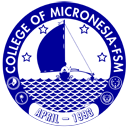World Water Day 2017 – A message from Yap CRE
By: Dr. Murukesan Krishnapillai
Are you a waster? The answer is yes - we’re all wasters when it comes to wastewater. Eight percent of water flows back to nature untreated, polluting the environment and wasting a precious resource. Let's reduce the quantity and pollution of our wastewater, and safely reuse as much as we can. Reduce and reuse wastewater.
March 22 is celebrated as World Water Day to focus global attention on the importance of water and advocating for the sustainable management of our water resources. World Water Day is an international observance and an opportunity to learn more about water related issues, to inspire others and take action to make a difference.
An international day to celebrate freshwater was recommended at the Earth Summit in 1992. The United Nations General Assembly responded by designating 22 March 1993 as the first World water Day, and it has been held annually since then. Water is a key determinant in all areas of development and, therefore, a central focus of all activities focusing on food security, resilience to natural and human-induced disasters and sustainable development. Sustainable management of water resources, wastewater management and water quality are all indispensable elements for building a water-secure world. The Sustainable Development Goals launched in 2015 include a target to ensure everyone has access to safe water by the year 2030, making water a key issue in the fight to eradicate poverty.
Each year, United Nations sets a theme for World Water Day corresponding to a current or future challenge. This year’s theme is Wastewater and the campaign, ‘Why waste water?’ is about reducing and reusing wastewater.
Globally, the vast majority of all the wastewater from our homes, towns, cities, industries, and agriculture flows back to nature without being treated or reused – polluting the environment, and losing valuable nutrients and other recoverable materials. About 1.8 billion people use a source of drinking water contaminated with feces, putting them at risk of contracting cholera, dysentery, typhoid and polio. A recent regional report prepared by the World Health Organization found that almost 70 percent of people living in the Pacific are without access to improved sanitation, and almost 50 percent lack access to improved drinking water supplies.
On site wastewater reuse can reduce water use in both urban and rural households. Water is a precious commodity so why waste water when there are some simple methods that you can apply to conserve it. As islanders, all of us can do our part. Instead of wasting wastewater, we need to reduce and reuse it. The cost of wastewater management is greatly outweighed by the benefits to human health, economic development and environment sustainability. By exploiting this valuable resource, we can make the water cycle work better for every living organism on this planet.
